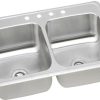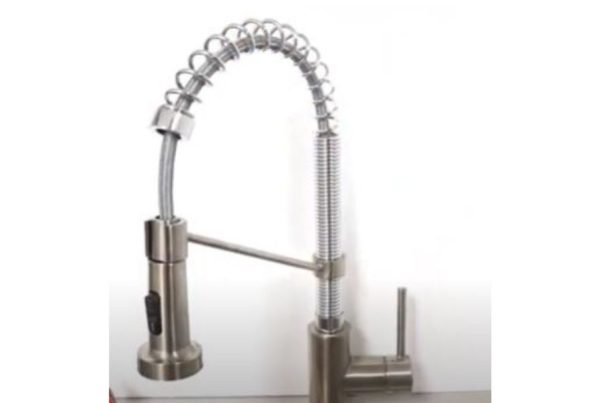Regarding kitchen appliances, the best grease for Kitchenaid mixer is an iconic and reliable choice for many home cooks and professional chefs. It is a versatile and powerful tool that can handle various tasks, from mixing and kneading dough to whipping cream and beating eggs. To ensure your KitchenAid mixer’s longevity and optimal performance, it’s crucial to use suitable grease during maintenance and repairs. The best grease for a KitchenAid mixer is a complex piece of machinery with various moving parts that require lubrication to function smoothly. It acts as a protective barrier, shielding the internal components from dust, moisture, and other contaminants that could compromise functionality.
SPECIFICATIONS
Capacity: 5 Quarts Item Weight: 15 pounds
Product Dimensions: 9.3″D x 14.3″W x 14″H
Blade Material: Stainless Steel
Special Feature: Removable Bowl
TODAY’S BEST DEALS
 REASONS TO BUY
REASONS TO BUY
- Excellent lubrication: The best grease for a KitchenAid mixer provides superior lubrication, ensuring smooth and efficient operation of the machine’s moving parts.
- Long-lasting protection: High-quality grease forms a protective barrier that helps prevent wear and tear, extending the mixer’s lifespan.
- Heat resistance: The suitable grease can withstand high temperatures, essential for a kitchen appliance that may generate heat during prolonged use.
REASONS TO AVOID
- Cost: Some high-performance greases can be more expensive compared to generic options.
- Specific application: Not all greases are suitable for use in KitchenAid mixers, so choosing a grease specifically designed for this purpose is essential.
- Potential mess: Applying grease can be messy, requiring caution and cleanliness to prevent accidental spills or stains.
Understanding KitchenAid Mixer Components
To comprehend the importance of grease, it’s essential to have a basic understanding of the main components of a KitchenAid mixer. The essential parts that require lubrication include the planetary assembly, worm gear, motor bearings, and control knobs. Each component plays a crucial role in the mixer’s operation, and ensuring they are adequately lubricated will help prevent unnecessary strain and potential damage.
Factors to Consider When Choosing Grease
When selecting the best grease for a Kitchenaid mixer, several factors should be considered. Here are some key considerations to keep in mind:
Compatibility
Ensure that the grease you choose is compatible with the materials used in your Best grease for kitchenaid mixer . The user manual or manufacturer’s website can guide the recommended types of grease for your specific model.
Temperature Resistance
A grease that can withstand high temperatures is crucial for the longevity of your mixer. Since the appliance generates heat during operation, using grease that can tolerate these conditions will prevent premature breakdown and maintain optimal performance.
Food Safety
Considering that the mixer comes into contact with food ingredients, selecting food-grade grease is vital. Food-grade greases are formulated with non-toxic components and are safe for incidental contact with food items.
The Best Grease Options for KitchenAid Mixer
When it comes to selecting the best grease for your KitchenAid mixer, several options stand out:
Lithium-Based Grease
Lithium-based grease is a popular choice for its versatility and excellent lubricating properties. It provides adequate protection against wear, corrosion, and oxidation. Lithium-based greases are also readily available and relatively affordable.
Synthetic Grease
Synthetic greases are engineered to withstand high temperatures and extreme operating conditions. They offer superior resistance to oxidation, provide extended lubrication intervals, and are ideal for heavy-duty applications. However, synthetic greases tend to be more expensive than other options.
Food-Grade Grease
If you prioritize food safety, food-grade grease is the way to go. These greases are specifically formulated to meet strict industry standards and regulations. They ensure that your mixer remains safe for use with food items, providing peace of mind for health-conscious individuals.
How to Apply Grease to Your KitchenAid Mixer
Applying grease to your best grease for a KitchenAid mixer may seem daunting initially, but it’s a straightforward process with the proper guidance. Here’s a step-by-step guide to help you:
- Disassemble the relevant parts of your mixer, following the instructions in the user manual.
- Clean the components thoroughly to remove any existing grease and debris.
- Apply a small amount of the chosen grease to the appropriate locations. Focus on the gears, bearings, and other moving parts.
- Reassemble the mixer carefully, ensuring all components are aligned and securely fastened.
- Test the mixer by running it briefly to distribute the grease evenly.
Maintenance Tips for Best grease for kitchenaid mixer
Regular maintenance is critical to keeping your KitchenAid mixer performing at its best. Here are a few maintenance tips to follow:
- Clean your mixer after each use to remove food residue and prevent grime buildup.
- Inspect the power cord and plug for any signs of damage before each use.
- Check for loose or worn-out parts and tighten or replace them as necessary.
- Store your mixer in a clean and dry environment, protecting it from dust and humidity.
Troubleshooting Common Issues
Even with proper maintenance, issues may occasionally arise with your KitchenAid mixer. Here are some common problems and possible solutions:
Excessive Noise or Vibration
If your mixer makes an unusual noise or vibrates excessively, it could indicate a lack of lubrication. Check the gears and bearings, and apply grease as needed.
Overheating
Overheating can occur when the mixer is operated for an extended period or under heavy loads. Allow the mixer to cool down and avoid overloading it. If the issue persists, consult a professional.
Lack of Power
If your mixer lacks power or struggles to perform as expected, it may be due to insufficient lubrication. Apply grease to the appropriate parts and ensure the gears are correctly aligned.
Frequently Asked Questions (FAQs)
What happens if I don’t use grease on my KitchenAid mixer?
Without grease, the moving parts of your KitchenAid mixer will experience increased friction, leading to wear and tear. This can result in decreased performance, increased noise, and potential damage to the internal components of the mixer. It is essential to use grease to ensure smooth operation and prolong the lifespan of your appliance.
How often should I grease my KitchenAid mixer?
The frequency of greasing your KitchenAid mixer depends on how frequently you use it. However, if you notice any signs of increased friction, unusual noise, or decreased performance, it’s advisable to grease the mixer immediately.
Can I use any grease for my KitchenAid mixer?
No, it is crucial to use the appropriate type of grease recommended explicitly for your KitchenAid mixer. Different models may have different requirements, and using the wrong type of grease can lead to complications and potentially damage your appliance. Always consult the user manual or the manufacturer’s website for the recommended grease for your specific model.
Can I clean my KitchenAid mixer with water?
To clean the central unit, wipe it down with a damp cloth. Unplug the mixer before cleaning, and avoid using harsh chemicals or abrasive materials that may damage the finish.
Where can I purchase the recommended grease for my KitchenAid mixer?
You can check with authorized KitchenAid retailers, appliance repair stores, or online marketplaces. It’s essential to ensure that you purchase genuine and high-quality grease to maintain the performance and integrity of your appliance.
Conclusion
In conclusion, choosing the best grease for your best grease for KitchenAid mixer is vital for its optimal performance and longevity. By understanding the importance of grease, selecting the appropriate type, and following proper maintenance procedures, you can ensure that your mixer continues to deliver outstanding results for years. Regular greasing, cleaning, and maintenance will help you get the most out of your KitchenAid mixer and enhance your culinary adventures.














